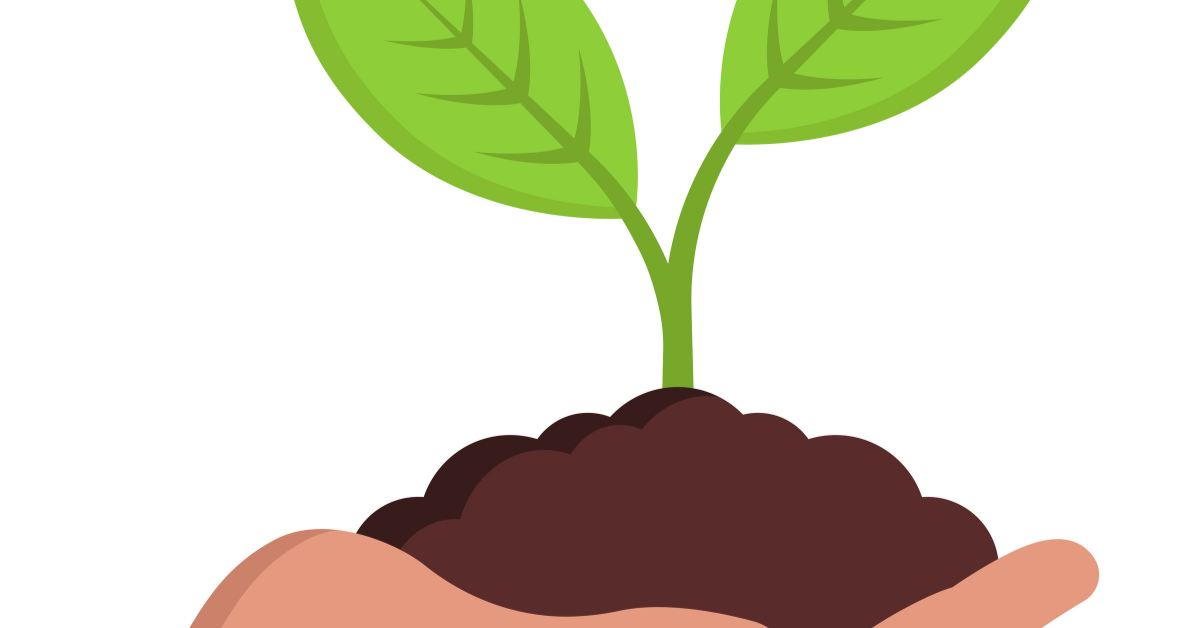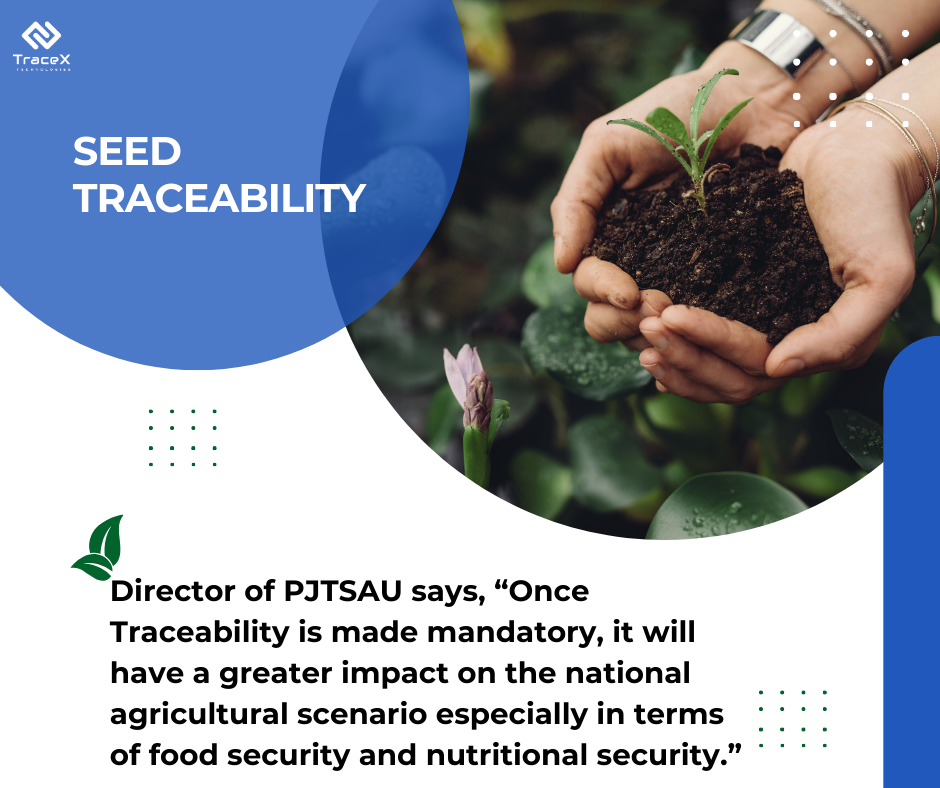Contact: +91 99725 24322 |
Menu
Menu
Quick summary: Discover the complexities and solutions within the seed supply chain in our insightful blog. Uncover the challenges faced and explore innovative strategies to overcome them.

In agriculture, seeds are the foundation of food security and crop productivity. Yet, behind every seed lies a labyrinth of challenges in the supply chain. Imagine farmers struggling with inconsistent seed quality, manufacturers battling counterfeit products, and distributors grappling with fragmented logistics. The seed supply chain, though vital, is often plagued by inefficiencies and vulnerabilities.
From ensuring genetic purity to meeting compliance standards and tackling spurious seeds, the journey of a seed—from breeder to farmer—is fraught with hurdles. These challenges not only jeopardize yields but also risk trust among stakeholders, making it critical to address them head-on. What if there were a way to bring transparency, accountability, and efficiency to the seed supply chain? Let’s delve into the pressing issues and explore innovative solutions reshaping this industry.
Key Takeaways
Seeds are an integral part of agriculture, being the effective and efficient means of crop propagation. Seed sustains life and protects it. It is a very important input for agriculture. Quality seeds are important for crop growth which will satisfy the demand for food to feed the growing population.
Seed technology plays a major role as the potential gained by breeding can be distributed only through seeds. The production, processing, storage, and distribution are the various stages in seed technology. The nucleus seed is multiplied in a generation system as a breeder, foundation, and certified seed. The nucleus seed needs to be genuine and free from impurities and hence is produced strictly under isolation. The breeder seeds are genetically pure and have good germination properties.
Seeds are frequently called the cornerstone of agriculture. They serve as the basis for food production worldwide. The genetic characteristics and quality of seeds have a direct impact on crop yields and resilience, which in turn affects farmers’ abilities to enhance their productivity and adapt to climate challenges. Therefore, high-quality seeds are crucial for addressing environmental and social issues, as well as fulfilling the rising demands of an expanding population.
Seed is the fundamental unit for sustainable agriculture and India has a vibrant seed sector which has developed all along with agriculture through the years. Starting with the tradition of preserving seeds from previous crops, farmers have proceeded to develop a robust and integrated seed system. The public research bodies ICAR and CGIAR have contributed immensely with improved seeds for crop diversification.
In crop production, the seed is the most vital component. It determines crop productivity and improves quality and nutrients. Seed quality is the backbone of the food supply chain; it provides a platform on which the entity runs.
Seeds are produced by creating a nucleus with the potential to generate breeder seeds, which are then duplicated in vast numbers to form a seed crop. Seed quality must be maintained throughout the journey to achieve the target output under ideal conditions. Illegal seed practices like false labelling, counterfeits, misrepresentation and under-performing seeds have compromised seed quality.
From plant breeders, producers, processors, traders, and distributors seed quality has to be maintained. Good seed quality determines physical and genetic qualities like purity, viability, vigour, and health.
Purity: Analyses a seed’s physical characteristics, such as size, shape, and appearance. The absence of external substances such as pests and illness is determined by purity. Seeds that are too tiny or have fungal spots on them are deemed impure. Genetic purity is essential to achieve crops for either resistance or desired quality factors. It can be determined by laboratory tests or more traditional methods like grow-out tests. A seed is considered genetically pure when it possesses all the genetic qualities that the breeder has placed in the variety.
Viability: A notion in which seeds are examined for signs of life, more specifically, how the seed would develop into a normal seedling (germination) under ideal conditions. As seeds age, their viability decreases, so the temperature, freshness, humidity, and light levels of the places where they are stored must be closely monitored to ensure high longevity and shelf life that will give them their high commercial value.
Vigour: While viability measures the capacity of the plant embryo within the seed to develop into a seedling, Vigour measures the rate and ability of the plant embryo within the seed to develop into a seedling. It not only determines viability but provides the time and ideal conditions for germination.
Health: This focuses on seed production methods such as the use of natural and chemical-free fertilizers, seed disease resistance, storage, and transportation.
The global seed market is estimated to account for a value of USD 63 billion in 2021, growing at a CAGR of 6.6% during the period 2021-26 to grow to a value of USD86.8 billion. The demand for food, animal feed, biofuels has triggered the growth of the seed market. The Indian seed industry is the fifth largest seed market in the world, accounting for 4.4% of seed production globally. India is self-sufficient in fruits, vegetables and field crop seeds and is seeing a potential growth in paddy and maize. The active participation of both the public and private sectors has played a crucial role in laying a foundation for this seed industry.
The increasing need for food to feed the growing population, the requirement from the farmers to produce quality and productive yields with profitability and the sustainable agriculture practices are driving the global seed market. There has also been an increase in R&D activity for innovating new products especially in GM crops and responding to climatic and biofuel challenges, while protecting genetic diversity. The globalization of the seed industry and the strengthening of IPR has brought positive changes in the seed R&D sector.
The issue of spurious seeds poses a significant challenge to farmers and seed suppliers and affects crop yields and quality.
Do you know that 50% of the seeds available in the markets are fake?
Traceability in the seed supply chain is essential for ensuring the quality, safety, and integrity of seeds from production to consumption. By implementing robust traceability systems, seed producers and distributors can track the origin of seeds, monitor their journey through various stages of processing and distribution, and verify their authenticity. This enables stakeholders to respond effectively to quality issues, identify potential contamination or adulteration, and maintain compliance with regulatory requirements. Furthermore, traceability enhances transparency and accountability, fostering trust among consumers and stakeholders. With reliable traceability systems in place, the seed supply chain can better address challenges such as seed fraud, counterfeit products, and the spread of plant diseases, ultimately contributing to the sustainability and resilience of agriculture.
Forward traceability in seeds enables tracking the journey of seeds from production to distribution, ensuring quality and authenticity at every stage. This transparency helps seed producers and distributors meet regulatory requirements, combat counterfeit seeds, and build trust with farmers and stakeholders.
TraceX’s blockchain-based seed traceability solution transformed agricultural practices for a state government in India. By ensuring transparency and accountability throughout the seed supply chain, it provided farmers with verified, high-quality seeds. This innovation led to improved crop yields and fostered sustainable agricultural practices, empowering farmers and building trust across the ecosystem.
Capturing the seed to shelf forward journey will bring transparency and visibility into the seed supply chain and assure the farmers of a quality seed for agriculture.
Technology has seamlessly integrated the seed value chain and provided a configured system for smooth functioning by providing solutions across the supply chain.

The TraceX Food Traceability Platform brings transparency and efficiency to the seed supply chain, addressing key challenges such as quality assurance, compliance, and combating counterfeit seeds.
End-to-End Tracking: The platform records every step of the seed lifecycle—from production and certification to storage and distribution—ensuring traceability from the seed producers to the farmers.
Quality Assurance: By capturing data on seed varieties, production practices, and quality certifications, it ensures that farmers receive authentic, high-quality seeds.
Regulatory Compliance: The blockchain-powered system provides immutable records, helping seed companies and distributors comply with stringent regulations and maintain trust with stakeholders.
Counterfeit Prevention: With verifiable data at every stage, the platform deters the circulation of spurious seeds in the market.
Farmer Empowerment: Farmers can access verified information about the seeds they purchase, fostering better decision-making and higher crop yields.
By digitizing and integrating data across stakeholders, TraceX transforms the seed value chain into a transparent, efficient, and reliable system. This ensures a seamless flow of information, benefiting producers, distributors, and end-users alike.
The seed supply chain is at the heart of global agricultural productivity, but its challenges—ranging from quality control and traceability to counterfeiting and regulatory compliance—demand urgent attention. By embracing innovative solutions like digitization, blockchain, and transparent data sharing, stakeholders can build a resilient and trustworthy supply chain. These advancements ensure farmers access high-quality seeds while fostering sustainability and regulatory adherence, driving success across the agricultural ecosystem.
Key challenges include ensuring seed quality and authenticity, maintaining traceability, combating counterfeit seeds, and adhering to complex regulatory frameworks.
Technologies like blockchain, IoT, and digital traceability platforms provide transparency, streamline data, and enhance accountability, addressing issues like quality assurance and counterfeit prevention.
Traceability ensures every seed’s journey can be tracked from production to the farm, verifying quality, compliance, and authenticity while boosting trust among stakeholders.
